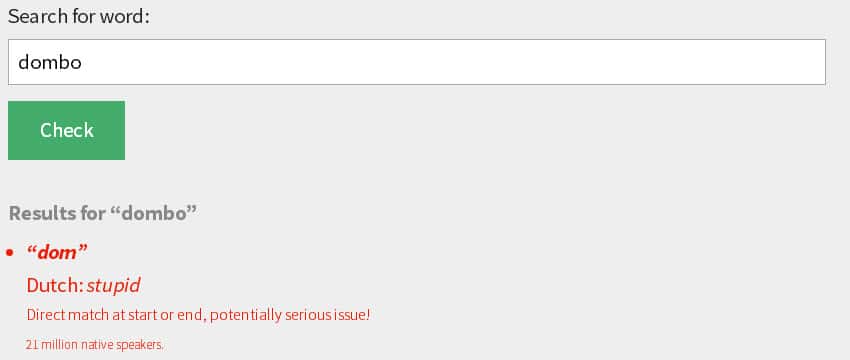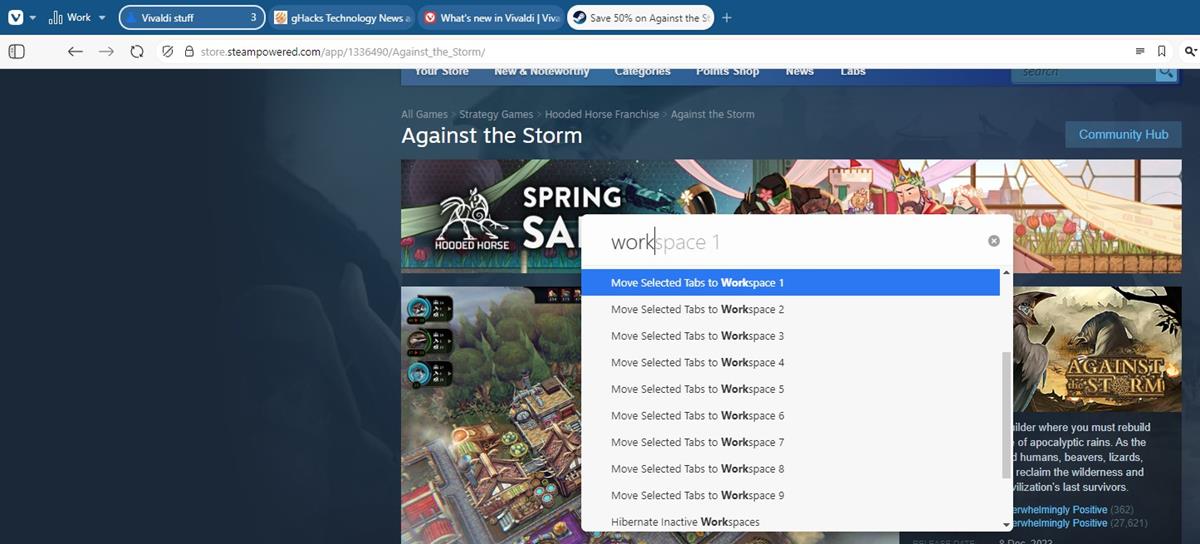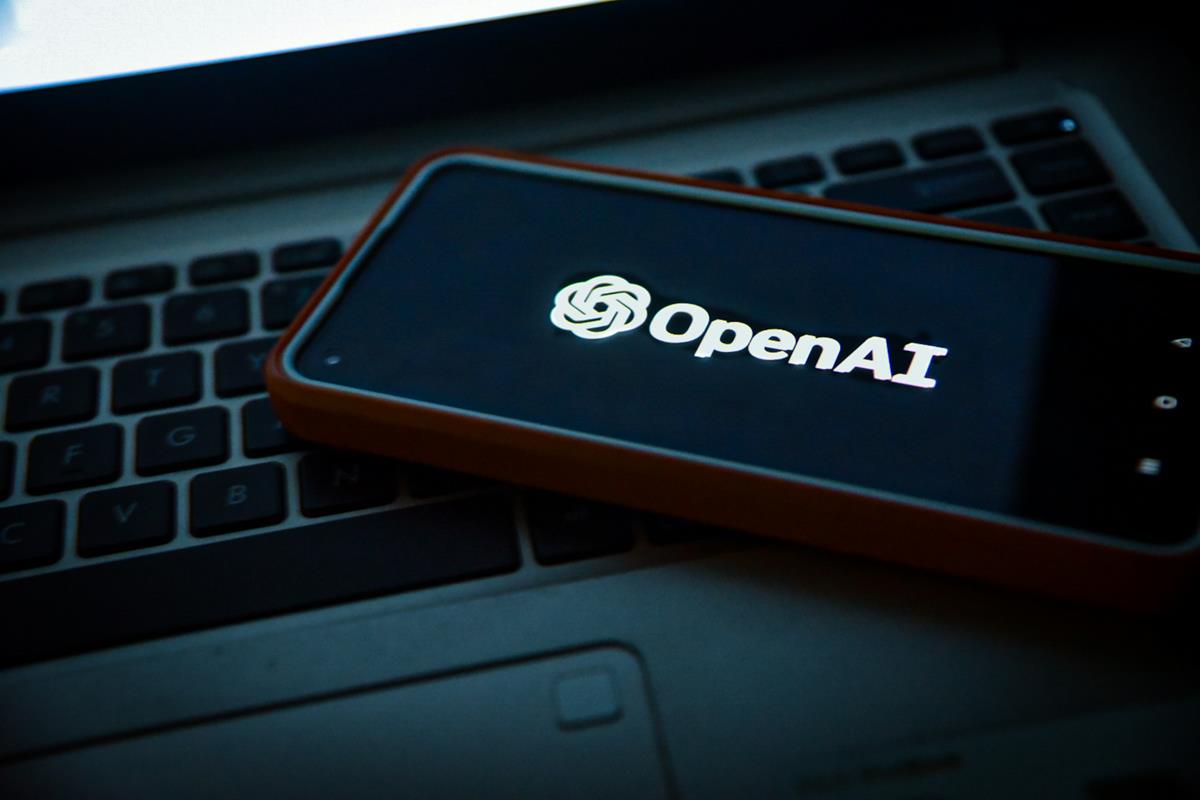Word Safety checks words for unwanted meaning in foreign languages

One of the most difficult things when it comes to creating new websites or services is to find an appropriate name that sounds great.
Not only are all the good names taken usually, you also have to take connotation and meaning into account.
If that would not be difficult enough already, you need to make sure that the selected word or phrase has no negative meaning in foreign languages if you plan to make it available to a worldwide audience directly or at a later point in time.
Dombo might sound like a suitable name for a product until you realize that it means stupid in Dutch. If you want to make sure that a name is safe, you have to look up that name in regular dictionaries and slang dictionaries.
Failure to look up names led to funny product names such as Barf, Pee Cola or AASS Fatøl which have a safe meaning in their native language but a different one in others.
The new web service Word Safety changes that for select languages as it will check words and phrases for you to make sure they are safe to use.
To use it, simply open the Word Safety website, type a word or phrase and hit the check button afterwards. Word Safety checks the entered word against swear words and unwanted associations in 19 languages and reports its findings back to you.
Supported languages include English, German, Chinese, Italian, French, Spanish, Russian and Polish.
Each result is listed with its meaning in foreign languages, the severity of it, and the approximate native speaker count.
19 languages may not seem like much considering that there are hundreds to check, but the supported 19 languages cover almost 4 billion native speakers and all the people who understand the language on top of that.
At the very least, it saves you from checking words in those languages. Depending on the project, you may still need to look it up to make sure it has no negative connotation in unsupported languages.
Closing Words
Word Safety is a useful service for webmasters, companies and anyone else who is looking for a name for a website or project and wants to make sure it is safe to use. It is a great option for an initial check of words or phrases that you consider using.























Fascinating. I love words and word origins. I dabbled about entering a few dubious words into this. Eventually I found that. “Cu’ in Portuguese means a**hole. I don’t know what they would make of our word cucumber!
o.O in other regions “cu” means “see you” … as a farewell-wording in an SMS or email. Now i understad why i got no more replies from my portuguese business partners. XP just kidding….
It’s the same thing with gestures. A thumb’s up is not always a sign for “everything’s fine”, also the “OK-Sign” with thumb and forefinger as a circle.
I don’t find this ridiculous – far away from that! But it’s funny. And it’s good someone has built a tool to avoid such misunderstandings. (Remember the Mitsubishi Pajero? Just tested! It works!)
You can submit missing words or get informed by mail … good thing!
Thanks & have a nice weekend
And cul in French means a** as a whole, if I may say.
Languages are so tricky. But ignorance can also be a pretext for a dubious mind. To know or not to know that is (also) the question. I had such a wonderful time when I ignored the meanings of life; it became less funny as literacy made it’s way to my own.
verdammt and Dreckkopf are “safe” words?
Does Word Safety handle languages’ slang? I’ve checked a French word which in argot (French slang) has a meaning not suitable unless for underground topics… pine in argot means penis, not a shame but rather unsuitable on a visit card. Lol.
I submitted to Word Safety. The website has just opened and perhaps lacks many words which will be added with time and users’ contributions. Nice finding, not to mention that the usability concerns all areas where a word/name is searched, aliases and pseudonyms included. I wouldn’t dare use pine as a pseudonym! Lol#2